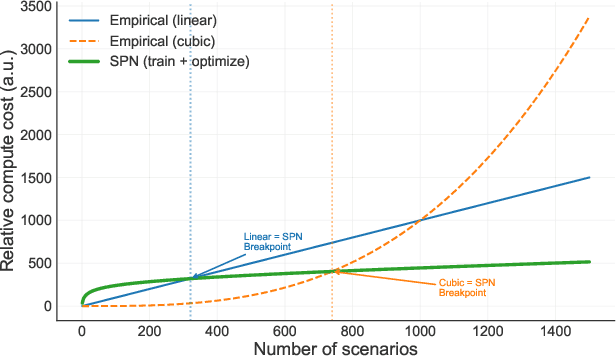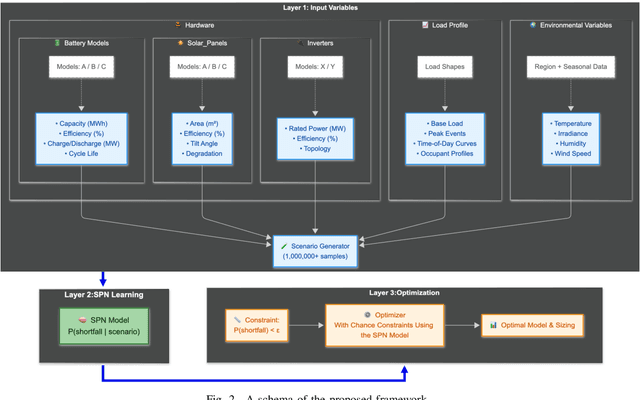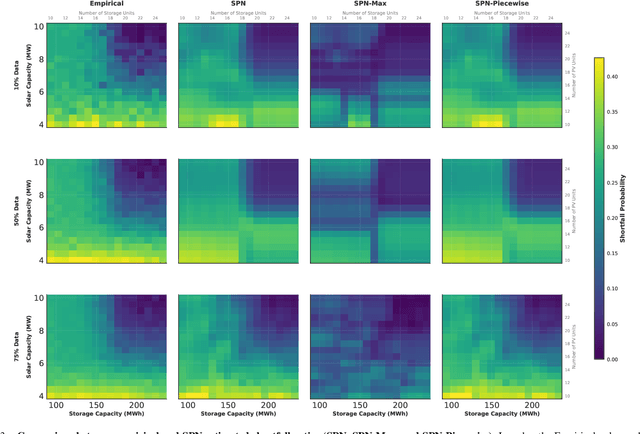Mohannad Takrouri
Tractable Probabilistic Models for Investment Planning
Nov 17, 2025



Abstract:Investment planning in power utilities, such as generation and transmission expansion, requires decade-long forecasts under profound uncertainty. Forecasting of energy mix and energy use decades ahead is nontrivial. Classical approaches focus on generating a finite number of scenarios (modeled as a mixture of Diracs in statistical theory terms), which limits insight into scenario-specific volatility and hinders robust decision-making. We propose an alternative using tractable probabilistic models (TPMs), particularly sum-product networks (SPNs). These models enable exact, scalable inference of key quantities such as scenario likelihoods, marginals, and conditional probabilities, supporting robust scenario expansion and risk assessment. This framework enables direct embedding of chance-constrained optimization into investment planning, enforcing safety or reliability with prescribed confidence levels. TPMs allow both scenario analysis and volatility quantification by compactly representing high-dimensional uncertainties. We demonstrate the approach's effectiveness through a representative power system planning case study, illustrating computational and reliability advantages over traditional scenario-based models.
Knowledge Distillation from Large Language Models for Household Energy Modeling
Feb 05, 2025Abstract:Machine learning (ML) is increasingly vital for smart-grid research, yet restricted access to realistic, diverse data - often due to privacy concerns - slows progress and fuels doubts within the energy sector about adopting ML-based strategies. We propose integrating Large Language Models (LLMs) in energy modeling to generate realistic, culturally sensitive, and behavior-specific data for household energy usage across diverse geographies. In this study, we employ and compare five different LLMs to systematically produce family structures, weather patterns, and daily consumption profiles for households in six distinct countries. A four-stage methodology synthesizes contextual daily data, including culturally nuanced activities, realistic weather ranges, HVAC operations, and distinct `energy signatures' that capture unique consumption footprints. Additionally, we explore an alternative strategy where external weather datasets can be directly integrated, bypassing intermediate weather modeling stages while ensuring physically consistent data inputs. The resulting dataset provides insights into how cultural, climatic, and behavioral factors converge to shape carbon emissions, offering a cost-effective avenue for scenario-based energy optimization. This approach underscores how prompt engineering, combined with knowledge distillation, can advance sustainable energy research and climate mitigation efforts. Source code is available at https://github.com/Singularity-AI-Lab/LLM-Energy-Knowledge-Distillation .
 Add to Chrome
Add to Chrome Add to Firefox
Add to Firefox Add to Edge
Add to Edge